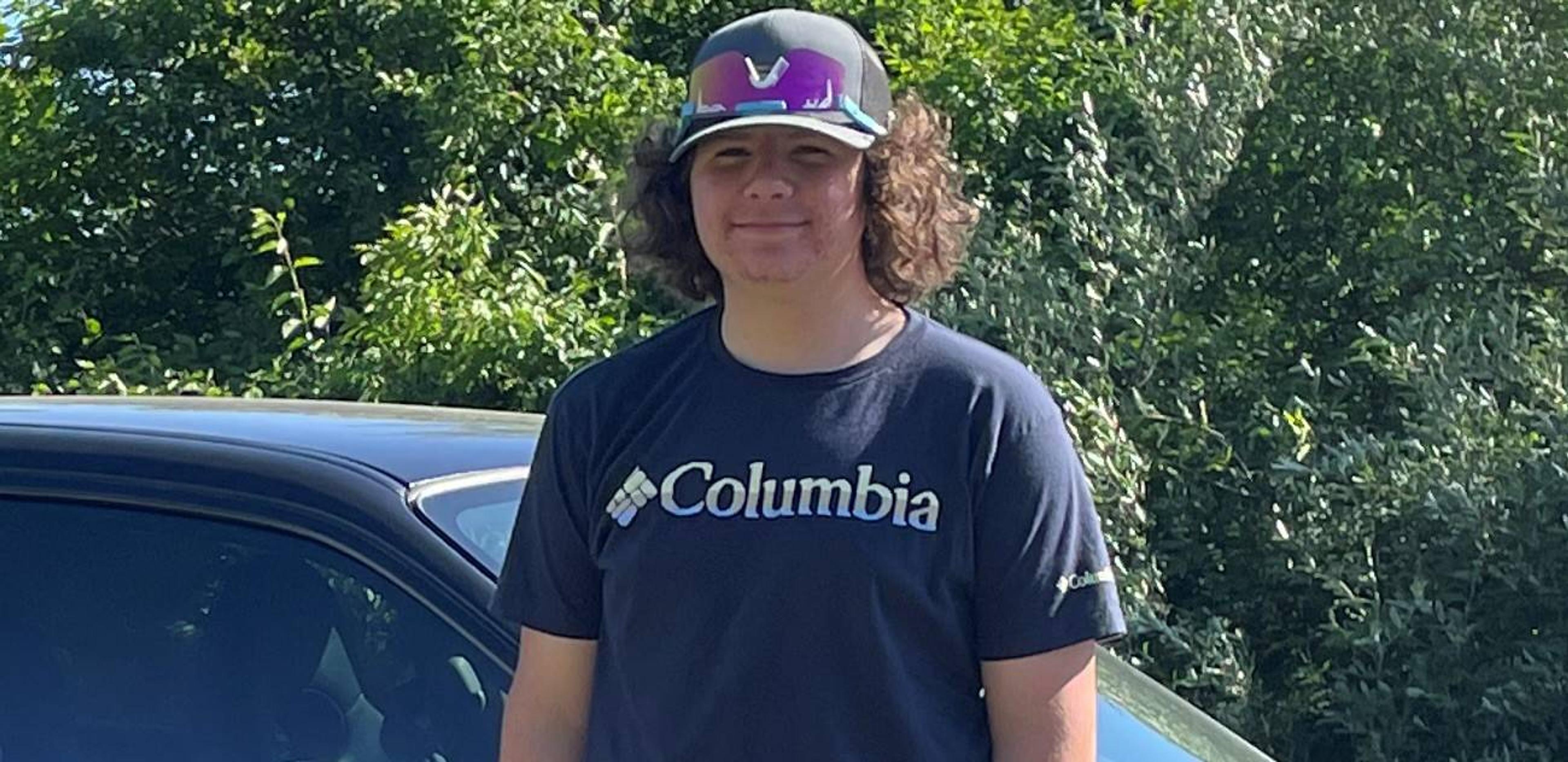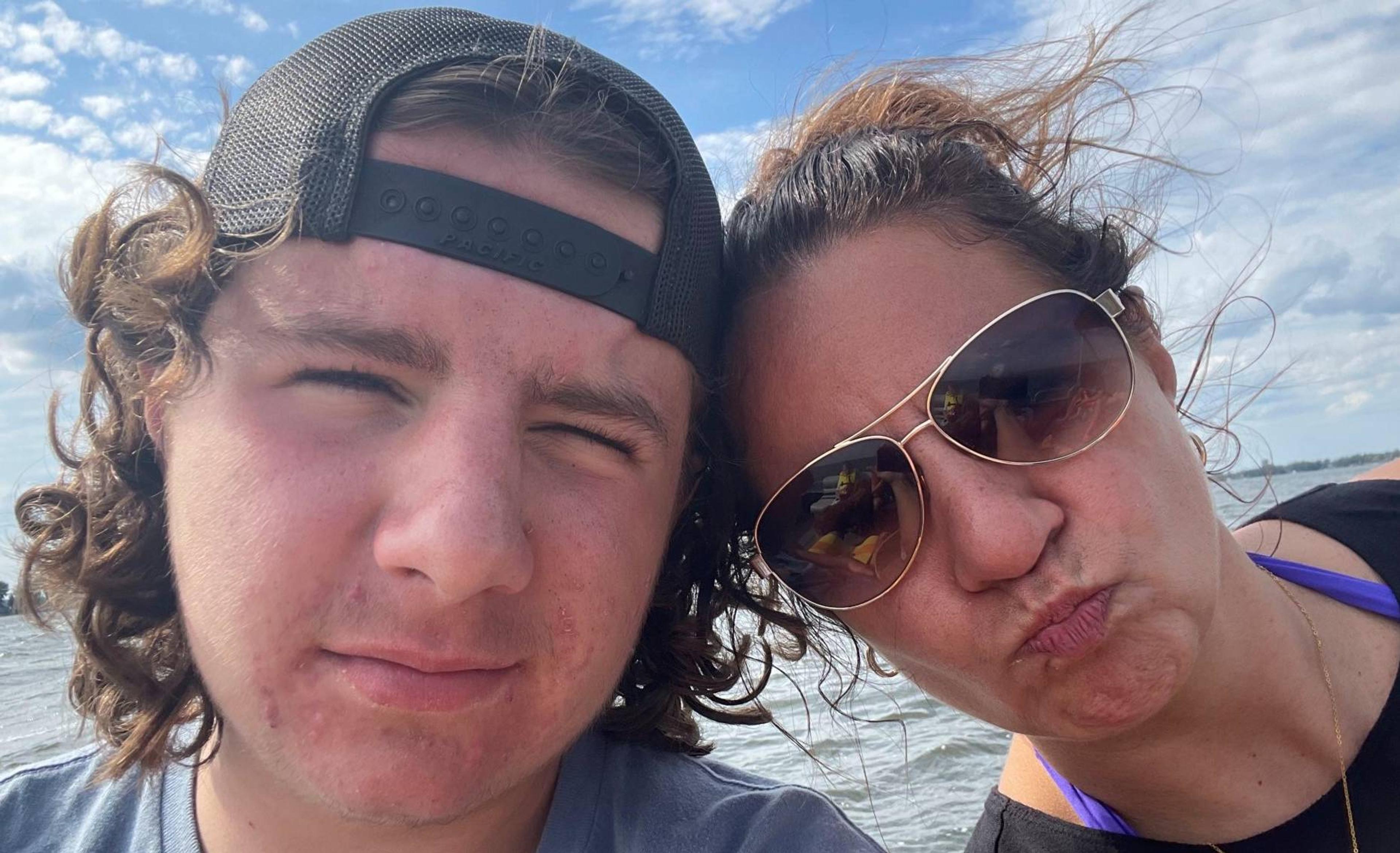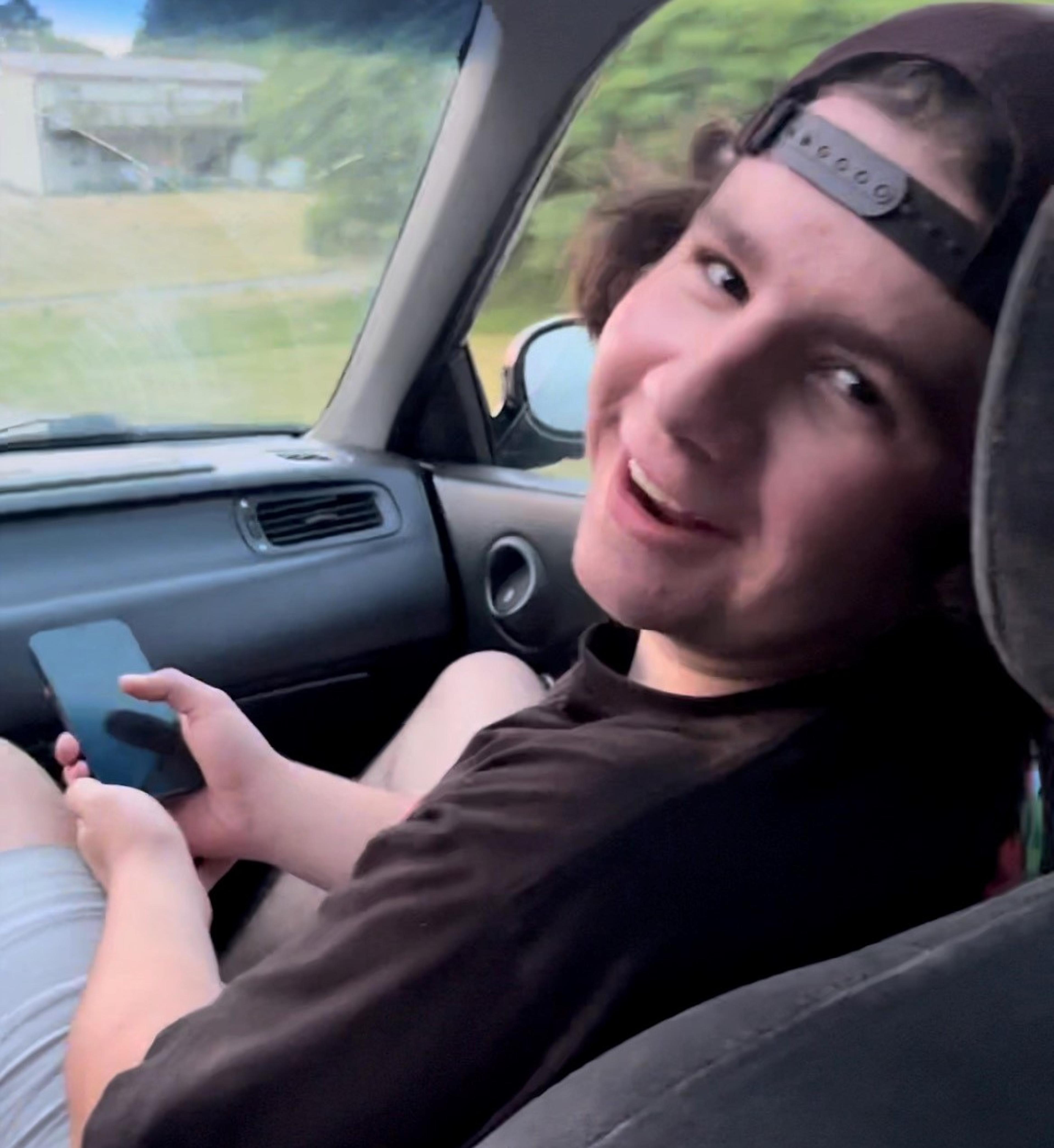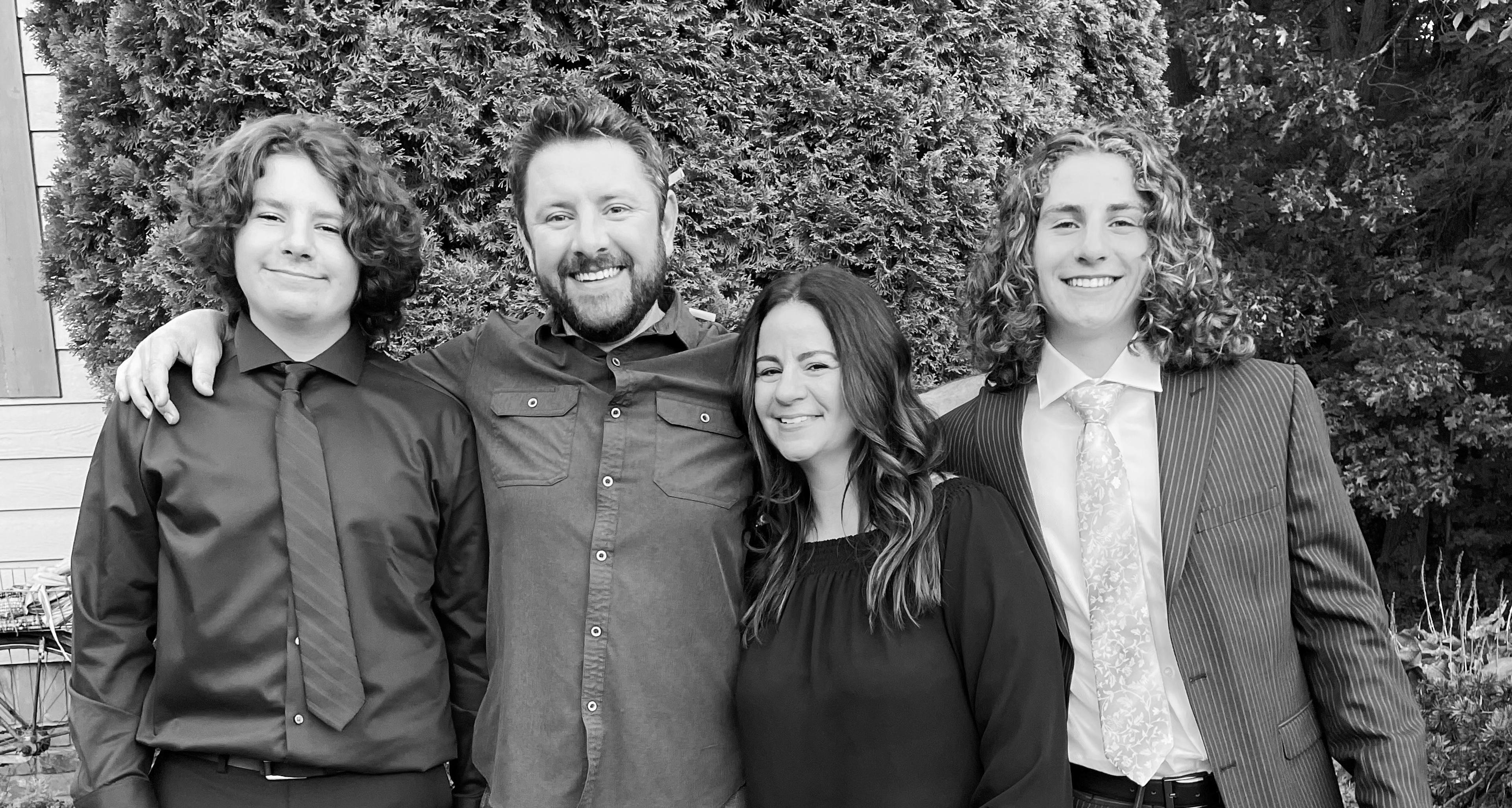Davisburg Mom’s Fearless Transparency After Losing Son to Suicide Inspires Families to Discuss Teenage Mental Health

Jake Newby
| 9 min read
Jake Newby is a brand journalist for Blue Cross Blue...

Lori Walton didn’t owe it to anyone to appear “strong” at the site of her son Deegan’s suicide a few hours after it happened. As family and friends of her late son gathered, Walton hugged her husband on the worst day of their lives. She looked over his shoulder and happened to lock eyes with one of Deegan’s closest friends. Walton remembers feeling the need to stay composed during that unthinkable moment.
“I’ll never forget the look on his face,” said Walton, a resident of Davisburg, Michigan. “I remember it just felt like, he is watching me find out my son is gone and he’s losing his friend, and the way I react is going to matter.”
That moment foreshadowed the way Walton and her family would handle 17-year-old Deegan’s passing and the stigma that still surrounds suicide. Walton has been an open book since her son’s death, not only willing to share Deegan’s last days in great detail – like she did when she wrote a blog for Detroit Mom in February – but to actively advocate for suicide prevention and discuss teenage mental health with anyone who chooses to engage with her.
“I’ve spoken to hundreds of kids, and I think most importantly, I would tell parents to start talking to their kids about mental health when they’re little,” Walton said. “Some parents will say, ‘she’s 6yearsold, I don’t need to talk to her about mental health.’ And I share with them that my first patient ever as a nurse was a 6-year-old boy who was suicidal. In my mind I feel like, ‘how do you even know what that is at 6yearsold?’ But I grew up in a different time than they are. While that’s hard for us as grownups to understand, it’s the reality.”

‘He just made things so much more fun’
October 1 will mark one year since Deegan – a high senior dual enrolled at the University of Michigan-Flint – passed.
“One of the things I miss most about him is his humor, his laugh,” Walton said. “He just made things so much more fun. Anything you were doing, anything you said, he’d come up with the funniest things all the time. It was always like, ‘where did you come up with that even?’”
In the fall of 2023, Deegan’s social life began to cause him a lot of stress and anguish. A girl he dated on and off agreed to go to their school’s homecoming dance with Deegan’s best friend. This interaction happened during a bonfire Deegan was not invited to.
“He was heartbroken,” Walton said. “I was like, ‘did they tell you this was happening?’ And he said, ‘no, everyone was making jokes.’ So, I connected the dots.”
While telling his mom about this a short time later, Deegan admitted he needed help. She remembers him saying he felt “so sad all the time.”
“I’m a pediatric trauma nurse, literally every patient that I’ve triaged, one of the questions I ask them is, ‘do you feel like you’re going to hurt yourself?” Walton said. “But I couldn’t ask my own son. So, after the conversation we had earlier that night, I forced myself to get out of bed, go into his room, and ask, ‘Deegan, are you feeling like you’re going to hurt yourself?’”
Deegan groaned and rolled his eyes. “No, mom.”

“I feel like I processed the magnitude of the situation, but also in my mind I asked myself, ‘Is he asking me for help? Is he telling me he needs professional help, or he needs my help?’” Walton said. “I convinced myself that he needed my help. I kept a close eye on Deegan that week.”
The conversations Lori and Deegan had in the coming days made it clear to Walton that her son was being ostracized at school. That Saturday, Sept. 30 was Deegan’s homecoming, and though he didn’t go to the dance, he visited the after-party. Walton recalls Deegan coming home from the party for a half hour, going back to the party for about an hour, then coming back home and sitting in his car in the family driveway, talking to the girl he had been dating on the phone until about 2 a.m.
The next day, he decided to skip a family boating trip to Lake St. Clair, convincing his parents he had to study instead. Deegan took his own life that day.
“I never ever would have guessed this would have happened,” Walton said. “And had we not had that conversation in his bedroom the week before, you would have had a really tough time convincing me that he did this on purpose. I would never have believed it.”
When Walton looks back at that day, she said she’s able to put the puzzle pieces together.
“Between the Ring doorbell camera and the text messages on his phone, it seemed like kind of a last-minute decision,” Walton said. “He sat on the side of the road texting people, almost screaming for people to help him, almost screaming for someone to tell him, ‘Don’t do it.’ And no one replied.
“He sent one last text to my older son’s girlfriend – they’ve been together almost six years now so she’s kind of like Deegan’s big sister – he knew she would reply. I feel like he intentionally texted her last on purpose,” Walton said. “She didn’t have time to reply. By the time she could send a text message he was already gone.”
‘If I can reach one single kid that is feeling like Deegan did, it’s totally worth it’
The dynamic is different for every family when it comes to discussing mental health or not discussing it. Some kids veil what they’re feeling and decide against opening up to their parents. Some parents minimize their kids’ concerns.
“I’ve tried to talk to my parents, and they don’t believe me,” is one response Walton recalls reading from a teen in recent months.
She said if there’s one thing she can change, it’s that she would have let her own guard down a little more often to send a message to her sons that it’s OK to be flawed and to not make them think they need to have it together at all times.
“I wish I would have let them see my faults,” she said. “I wish I would have let them see my struggles. So that, they would understand it’s OK to worry about things.”
The blog on Detroit Mom has resulted in hundreds of thousands of conversations between Walton and others, most of them complete strangers. Since making the conscious decision to be as transparent as she could be on the path of advocacy she chose to walk, one of Walton’s recurring messages to families is to treat mental health as seriously as they’d treat a physical ailment.
“Mental health in our generation is stigmatized and taboo, and we really give the younger generations a lot of crap about it,” she said. “We say, ‘you’re so soft’ or whatever. Even though the truth of it is, we all feel those feelings, a lot of us just try to hide them better. So, when I say, ‘talk to your kids when they’re little,’ obviously do it on your terms, obviously do it in words they can understand, words that are appropriate. But I think it should be a goal for parents to make it as comfortable for them to say, ‘I’m really struggling with sadness,’ as it is to say, ‘my stomach really hurts.’ Mental health is no different than physical health. It’s just a different part of your body.”

Another piece of advice Walton often gives is for parents to find ways to discuss mental health that do not feel so heavy. Terms like “I need help” or “I’m not OK” are extremely vulnerable things to say. That’s why she’s encouraged families to find ways to connect with their kids in other ways.
“One mom said, ‘I read your messages, and I was talking to my kid and trying to figure out how I can help him, and together we decided on a word to use. So, if he ever texts me that word, I know that he needs my help,’” Walton relayed. “He doesn’t have to say it, he doesn’t have to say anything of the things that are really hard to say. He simply has to text her that word. And while some may think that sounds silly, it really gives them an out. So, I thought that was pretty cool.”
Walton launched a TikTok account at the end of 2023 to give Deegan’s story a platform in hopes of encouraging mental health discussion for any family that comes across her posts. One of Walton’s most-viewed TikToks was simply a message in front of a picture of Deegan. It read: “68 days ago we lost out 17-year-old son to battle against depression that we didn’t even know he was fighting. Read that again. Sometimes the brightest smiles mask the deepest pain.”
People respond often to posts like these, said Walton, who won’t forget an interaction she had with a user earlier this year.
“To hear kids reach out to you and say, ‘the post you made or the comment you made or the message you sent me saved my life,’ and they’ll tell their story,” Walton said. “One kid recently said ‘I was home alone. I waited for my dad to leave that day because that was going to be my day. I had my plan in place, and I happened to come across your TikTok. He left a comment, and I direct messaged him and talked a little bit about Deegan’s story and his message. He messaged me back a few days later and told me he waited for his dad to come home. ‘I waited for my dad to come home, and I opened up and told him how I felt, so you saved my life that day.’”
Walton retells her son’s story so often, or makes social posts referencing her family’s loss, to serve as conversation starters for others. When she succeeds at doing that, she feels like she’s done right by Deegan.
“Those are the messages that really tell me that Deegan continues to have an impact,” Walton said. “When I make these posts, I do so thinking, ‘If I can reach one single kid that is feeling like Deegan did, it’s totally worth it.’”
The Walton family created The Deegan Project to raise funds and spread awareness for suicide prevention. Visit the Deegan Project website to learn more.
Related:
Photo credit: Lori Walton





